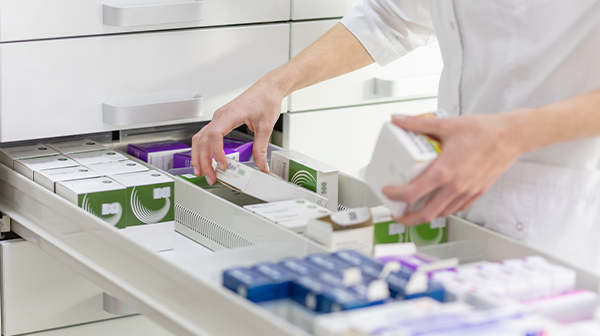Table of contents

Digitalizing relationships between life sciences companies and external manufacturers is critical to keeping up with evolving track-and-trace regulations around the globe, enabling clear and transparent data exchange, and ensuring supply chain agility and flexibility, according to Marjorie LAUE SOULE, QA Engineer with Synarlab Group, a leader in pharmaceutical contract manufacturing in France and Spain.
In this video, she talks about the challenges Synerlab Group aims to address through supply chain digitalization and her experience working with the TraceLink support team to overcome product serialization hurdles. She also has some sage advice for life sciences companies seeking to digitalize relationships with external manufacturers. Watch the video to learn more.
Video Highlights:
- 00:38 - How critical is digital integration between life sciences companies and CMOs today?
- 01:15 - What are the biggest challenges to successful digital integration with customers?
- 01:57 - How can digital integration improve supply chain agility?
- 02:40 - What has your experience been like working with the TraceLink team?
- 03:12 - What is your advice for life sciences companies seeking to digitalize relationships with external manufacturers?
TRANSCRIPT
TRANSCRIPT
Hello, I am Marjorie Laue. I’ve been working at Synerlab Group for five years. We are a European leader in pharmaceutical contract manufacturing in France and Spain. We work with a wide range of suppliers of exceptional active ingredients, and primary and secondary packaging. We ship our products within France and to other countries such as Russia and Japan.
I think it is important to digitalize all formal processes, especially serialization. That’s where we had our first contact with TraceLink. It enables constant, clear, and transparent data exchange not only with our suppliers, but also with our clients. So, it is basically our goal to digitalize as much as possible. By digitalizing, we can have access to the KPIs to track the numbers and progress of the company.
One of the main challenges that we faced and are still facing is the evolution of regulations, such as regulations on falsified medications. Regulations are always evolving and we need to stay consistent with these evolving regulations. Another challenge is keeping up with different regulations of each country that we work with because each of them has its own regulations and we need to stay aligned with each one.
I think agility and flexibility are key points in any client relationship you have like pharmaceutical manufacturers, and as a matter of fact, working with a platform like TraceLink gives us flexibility, especially as it evolves with the changing regulations. It provides transparency of data and constant data exchange with our manufacturers, suppliers, and clients. Working with such a platform allows us to maintain this link and transparency with our clients.
Our experience with the TraceLink team has been excellent. The team is competent and supportive in every way. Working on serialization is very technical as it involves constant data exchange, especially since we typically handle critical data. That's why we need support whenever we run into blocking issues and TraceLink continues to be helpful in that aspect.
I think digitalization is undoubtedly necessary. It is the future, and it is what awaits us. However, it also comes with its own challenges. It requires significant investment and is extremely time-consuming. It also requires larger teams to work on it. On the other hand, it allows for data exchange and transparency. My advice would be to digitalize a maximum number of processes according to the available resources at hand.
I think in this situation, the most important factor is the relationship with the client. Strong relationships with the client, transparency, and flexibility: I think they are the main key points to maintain a strong bond with the client.









